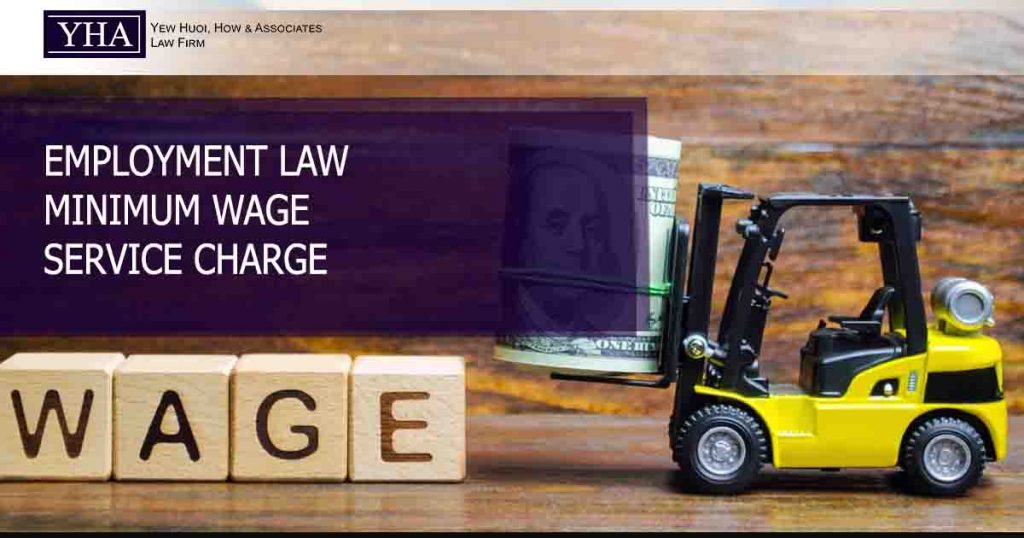Q: I am an employee in a hotel. In this industry, it is a standard practice for hotel employees to collect a 10% service charge from customers. The service charge is collected by hotel industry on behalf of us. However, recently the hotel industry implements a top up structure where they could utilize the service charge to top up any amount below the minimum wage.
Do they have the right to do so?
No, the hotel industry is not entitled to utilize part or all of the employees’ service charge to top up the minimum wage.
What legislation governs minimum wage in Malaysia?
The legislation governing minimum wage in Malaysia is the National Wages Council Consultative Act 2011 (“NWCCA 2011”) and Minimum Wages Order(s) 2012 to 2020 (“MWO”).
What is the objective of minimum wage policy?
- The object of NWCCA 2011 and MWO are to serve as a social legislation with a view to protect workers against unfair wages and ensure they are not exploited.
Definition of minimum wages
- Under NWCCA 2011, ‘minimum wages’ are defined as ‘basic wages’ determined by the government under the MWO.
Definition of basic wages
- Under Employment Act 1955, ‘wages’ are defined as ‘basic wages’ and ‘other cash payments payable to an employee for work done in respect of his contract of service’.
Whether service charge can be utilized to top up the minimum wage?
- Service charge falls within the definition of ‘other cash payments’, thus service charge cannot be a part of the basic wages.
- ‘Service charge’ is additional tips which does not belong to the hotel industry but the eligible employees. The hotel industry merely collects and holds the monies as a fiduciary or trustee until distribution to the eligible employees. In other words, the ownership of the service charge vests in the eligible employees.
- As such, the hotel industry cannot utilise money it does not own. The hotel industry is not entitled in law to appropriate and utilise the service charge to meet its statutory obligation.
The hotel industry explains that it is because COVID-19 pandemic affects the hotel industry severely.
The Covid-19 pandemic which affects the hotel industry as a whole cannot be a reason for the Courts to depart from the accepted principles of law in respect of the construction that ‘service charge’ is not a part of ‘basic wages’ under the minimum wage legislation.
Case in point: Crystal Crown Hotel & Resort Sdn Bhd (Crystal Crown Hotel Petaling Jaya) v Kesatuan Kebangsaan Pekerja-Pekerja Hotel, Bar & Restoran Semenanjung Malaysia [2021] 3 MLJ 466. Federal Court (Putrajaya) – Civil Appeal no: 02(f)-4-01 of 2018

